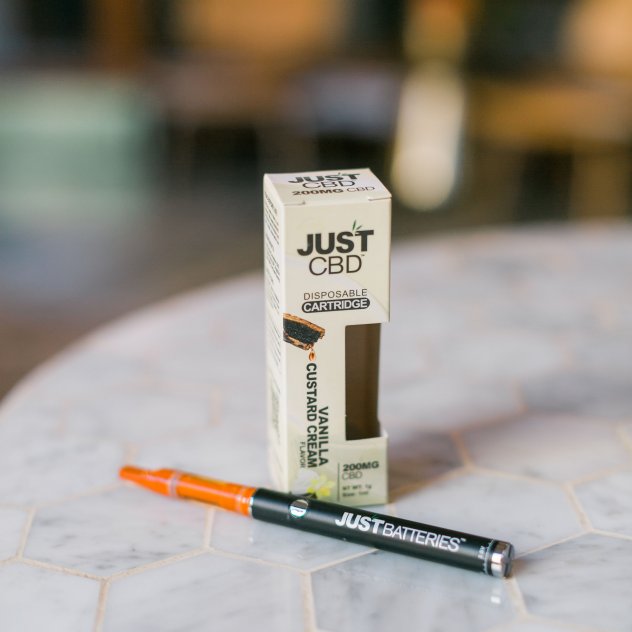Industrial Hemp 
Content
- Why Employee Training Is Your Key To Financial Success | Cannabis…
- Colorado Agriculture Director Has Big Plans For Hemp
- Hemp Industry Sees First Changes In Half Century
- Spacex Is Sending Hemp And Coffee To The International Space Station (Video)
- Colorado Companies To Send Cannabis To International Space Station On Spacex Spacecraft
- Colorado Researchers Sending Hemp And Coffee To Space In 2020
- The Roll-up #151: Nba Star Al Harrington Turns Cannabis Entrepreneur
- New California Law Legalizes Medical Marijuana Use At K-12 Public Schools
- Hemp Online Portal: Log In To Create/view Your Account, Apply Online, And Submit Reports
- Missouri Doh Opens Investigation Into Fraudulent Medical Cannabis Certs
The three organizations will collaboratively launch greater than 480 plant cell cultures into outer area. Using an incubator designed to maintain optimum growth conditions, these cultures will be loaded onto a SpaceX cargo flight, scheduled to launch in March of 2020. This mission will resupply necessities for astronauts presently docked at the International Space Station. Up to 480 plant cell cultures will reside in a space-made incubator that will regulate the temperature in their temporary residence aboard the ISS for about 30 days. For this project, biotech company Front Range Biosciences has partnered with SpaceCells USA Inc. and BioServe Space Technologies at the University of Colorado. Front Range Biosciences-- in partnership with the University of Colorado, Boulder -- by creating a new experiment of sending coffee plants to the International Space Station subsequent year as a part of a zero-gravity experiment. 
Why Employee Training Is Your Key To Financial Success | Cannabis…
The environmental situations for the cultures shall be monitored remotely from BioServe’s payload operations center on the University of Colorado, Boulder. After a couple of month, the cells will be returned to Earth, where researchers at Front Range Biosciences will study the plant samples and evaluate their RNA to determine how micro-gravity and area radiation exposure altered the vegetation’ gene expression. “Up to 480 plant cell cultures will reside in a space-made incubator that will regulate temperature in their momentary home aboard the ISS for about 30 days. The environmental situations for the cultures will be monitored remotely from BioServe's payload operations center on the University of Colorado, Boulder. After a few month, the cells shall be returned to Earth, where researchers at Front Range Biosciences will look at the plant samples and consider their RNA to find out how microgravity and space radiation publicity altered the plants gene expression.
Colorado Agriculture Director Has Big Plans For Hemp
The incubator will also allow the astronauts to look at how the plant cells will undergo genetic mutations in a zero-gravity surroundings. Tissue cultures of coffee lavatech universal domeless titanium nail with quartz dish vegetation will be transported to the ISS along with the resupply mission aboard SpaceX by 2020. The funding and management comes from SpaceCells USA whereas BioServe takes care of hardware necessities for the research. The non-public space firm’s Dragon capsule takes important supplies and experiments to the ISS every so often. And now, SpaceX is gearing as much as ship cannabis (popularly generally known as weed) and low to the Space Station. A Colorado analysis lab has teamed up with the area transportation agency to ship coffee and hemp plants to the International Space Station (ISS) in March. And it's going to have a look at how plant cells bear gene expression adjustments or genetic mutations while in area. Front Range Biosciences (FRB) is an agricultural biotech company that focuses on tissue tradition propagation and the economic-scale breeding of high-value crops to enhance consistency and efficiency for clone and seed production. Their focus in on improving commercially-related traits for hashish and hemp vegetation. Their Clean Stock program provides farmers with disease and pathogen-free hemp and coffee plants.
Hemp Industry Sees First Changes In Half Century
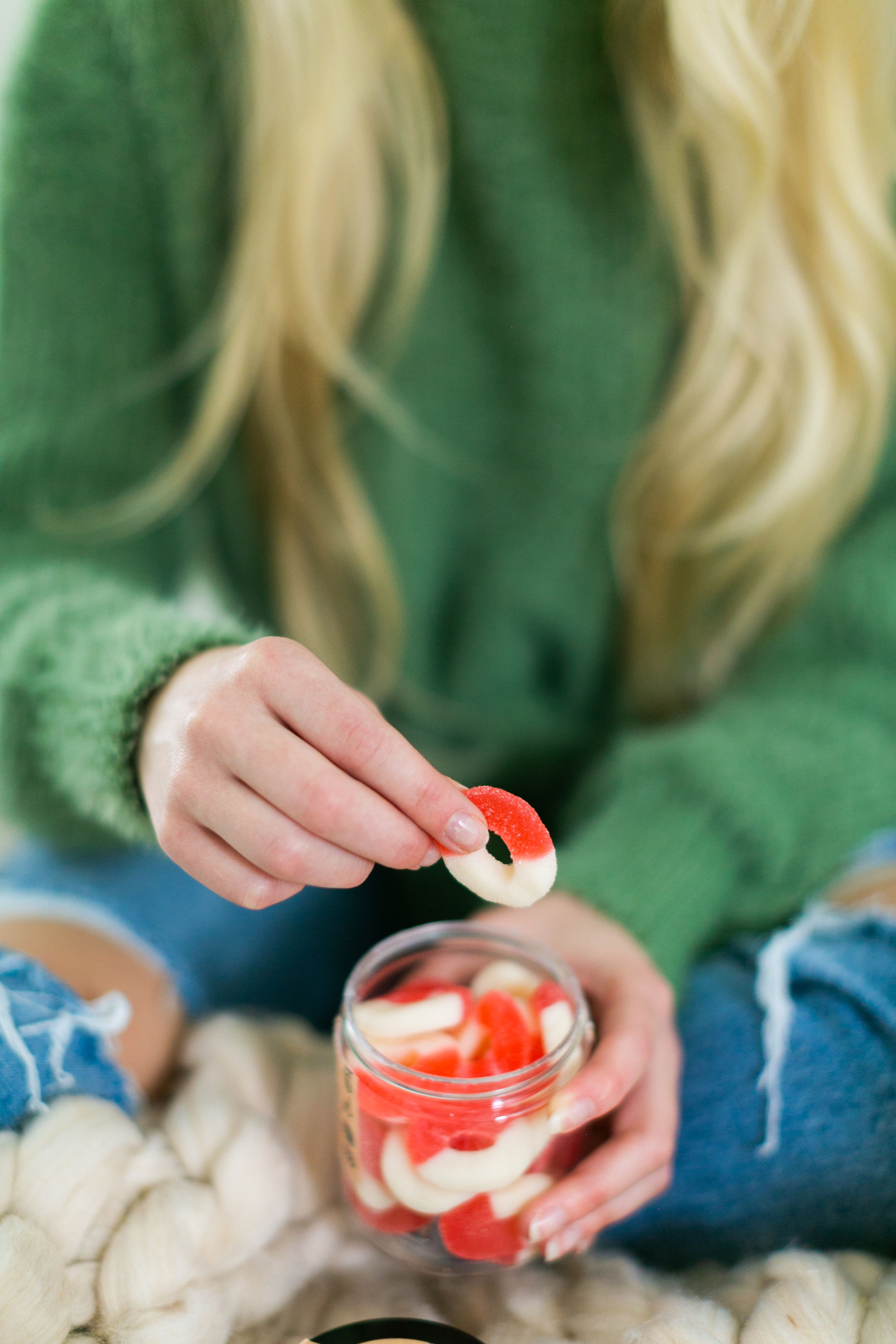 Researchers have an interest to see how microgravity and spaceflight affect the hemp and occasional cultures. There is evidence that implies crops may experience mutations while rising in house. Researchers wish to research these mutations and see what occurs to the plants once they're returned to Earth. The experiment, made up of 480 plant cell cultures, will be stored in an incubator for 30 days, whereas scientists monitor its improvement remotely from the University of Colorado, Boulder. Besides hemp, plant cultures of coffee may even be grown and monitored on the space station.
Researchers have an interest to see how microgravity and spaceflight affect the hemp and occasional cultures. There is evidence that implies crops may experience mutations while rising in house. Researchers wish to research these mutations and see what occurs to the plants once they're returned to Earth. The experiment, made up of 480 plant cell cultures, will be stored in an incubator for 30 days, whereas scientists monitor its improvement remotely from the University of Colorado, Boulder. Besides hemp, plant cultures of coffee may even be grown and monitored on the space station.
Happy Friday from #JustCBD!
— JustCBD (@JustCbd) July 10, 2020
The 500mg jars of CBD Gummy Worms come with approximately 31mg of CBD per piece, approximately 16 gummy pieces and a net weight of 180g.
Do you prefer sweet or sour gummy worms? Let us know in the comments below. ????https://t.co/LQeV96GYRq pic.twitter.com/UIivOzSB87
Studying how plants respond to environments similar to area can help corporations develop crops that thrive in locations on Earth where they have not grown nicely in the past. In 2017, Viceland sent a spliff into space reaching 32.4km into the atmosphere. In May 2019, Space Tango, a microgravity research and manufacturing company, launched the first hemp seeds into house. Once they “splashed down” again to Earth, the seeds had been grown and analyzed for variations in DNA expression. These cultures being sent will be monitored by BioServe remotely from the University of Colorado whereas they remain in an incubator on the ISS (International Space Station). The seeds, being transported by a SpaceX cargo flight in March, are headed into house so researchers can examine how zero gravity impacts the metabolic pathways of the vegetation, based on agricultural know-how company Front Range Biosciences (FRB).
Spacex Is Sending Hemp And Coffee To The International Space Station (Video)
CBD reached the edge of federal legalization last 12 months – a serious milestone for the up-and-coming substance. And perhaps no group has embraced the product more than our beloved group of Colorado. The Nielsen Company is an American organization, specializing in information assortment and measurement. Hemp was made legal once more final 12 months, permitting the experiment to gain federal approval. Meanwhile, Cannabis sativa remains to be unlawful on the federal stage in the United States, although many states have legalized its medical and leisure use. Hot on the heels of Aleph Farms sending a few of its cultivated meat cells up into space to be 3D printed into a tiny, tiny piece of steak, another daring agri-food tech mission is setting its sights on the International Space Station. The experiment is being focused for transport to the ISS aboard a SpaceX CRS-20 cargo flight that is scheduled for March of 2020. The results can also provide insights into how a plant mange the stress of space journey, particularly since astronomers are designing plans to terraform Mars. “These are massive ideas we're pursuing and there's a massive alternative to bring to market new Chemotypes, as well as Plants that can higher adapt to drought and chilly circumstances,” Peter McCullagh, the CEO of SpaceCells, stated in a statement. “We count on to show by way of these and other missions that we are able to adapt the meals provide to climate change." Hemp, marijuana and cannabidiol have comparable roots and are often confused by members of the general public who're still inexperienced to cannabis culture. As smoke store regulars might know, THC is the component of marijuana with the propensity for psychoactive results.
</ I Got The Goods! ????\>
— Michael Giovanni (@Giotraining) June 25, 2020
:: Loading Up! ~Candy Gains~???????? ::
Infused With @JustCBD! No Guilt Here ~???? Cuzzz They Are Sugar Free! Win!????Win!???? Tasty Snacks That Keep You Healthy! ~????????~
.
<<•>> Order Here! <<•>>
➕https://t.co/A6OVD6zSf4➕
Get 20% Off With Code: GIO20 pic.twitter.com/cwg7KqOrP0
With the advent of private area journey, an area of space research has emerged referred to as "new area", the place researchers are studying the results of microgravity on a wide range of organisms, together with everything from disease cells to numerous plant varieties. "There is science to assist the theory that vegetation in area experience mutations. This is a chance to see whether those mutations hold up once introduced again to earth and if there are new commercial applications." "This is likely one of the first instances anyone is researching the consequences of microgravity and spaceflight on hemp and coffee cell cultures," mentioned Dr. The crew at Front Range Biosciences, SpaceCells USA and BioServe don't believe this would be the sole mission. Instead, the group plans on conducting a collection of investigations that can enhance the productivity and viability of terrestrial crops and plants. The experiment, which is being carried out in partnership with SpaceCells USA Inc. and BioServe Space Technologies at the University of Colorado, Boulder, might be monitored remotely, Colorado. Its purpose is to find out if plant cells endure genetic mutations whereas in space. BioServe will monitor the coffee and hemp plants remotely from Earth to see whether they’ll mutate in any way aboard the house station. No, we're not anticipating them to mutate and wreak havoc in house (must cease watching violent sci-fi horror movies). Instead, the researchers want to see how these vegetation reply to new environments, keeping in mind the threat of local weather change. There’s a slight chance that we will be cultivating crops in area in the future. Here, Front Range will present the plant cultures of hemp (pressure of the Cannabis sativa plant species, with very low levels of the psychoactive compound THC) and low. 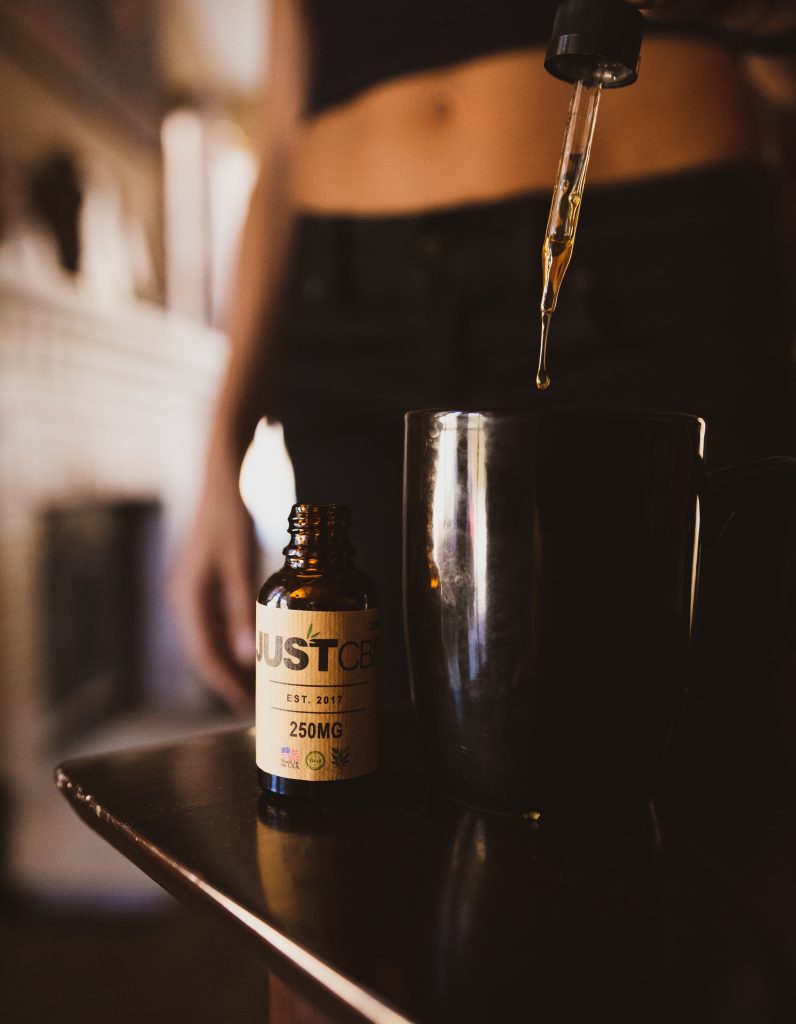
Colorado Companies To Send Cannabis To International Space Station On Spacex Spacecraft
In March of this 12 months, SpaceX CRS-20 cargo flight will carry tissue tradition samples of hemp and low to the International Space Station (ISS). Floating in a most peculiar means, the celebrities look very different, that's, the day those hemp samples enter orbit. The experiment, which is being carried out in partnership with SpaceCells USA Inc. and BioServe Space Technologies on the University of Colorado, Boulder, shall be monitored remotely Colorado. Because of rising temperatures due to climate change, there are many environments on Earth that are unable to support crops that when thrived in these areas. Learning how crops reply to novel environments – such as area – can help companies like Front Range Biosciences breed crops to thrive in places the place they haven't carried out successfully prior to now. Researchers notably chose the Java varietyof the espresso that might be sent to the International Space Station and shall be remotely noticed by researchers on the BioServe Space Technologies at the University of Colorado, Boulder. “This is likely one dankstop straight tube water pipe of the first occasions anyone is researching the effects of microgravity and spaceflight on hemp and coffee cell cultures,” Dr. Jonathan Vaught, the co-founder, and CEO of Front Range Biosciences stated in a press release.  BioServe will provide space-approved hardware to comprise the cultures under managed situations. The incubator will regulate temperature through the tissue tradition’s 30-day experiment. And researchers consider that this latest research may open a path to rising coffee and industrial hemp in a variety of new venues by identifying new varieties and chemical expressions of the plants.
BioServe will provide space-approved hardware to comprise the cultures under managed situations. The incubator will regulate temperature through the tissue tradition’s 30-day experiment. And researchers consider that this latest research may open a path to rising coffee and industrial hemp in a variety of new venues by identifying new varieties and chemical expressions of the plants.
- "There is science to assist the theory that vegetation in house experience mutations. This is an opportunity to see whether or not these mutations hold up as soon as brought again to Earth and if there are new industrial purposes to it."
- Using an incubator designed to maintain optimum growth situations, these cultures will be loaded onto a SpaceX cargo flight, scheduled to launch in March of 2020.
- Front Range Biosciences is a Colorado-primarily based biotech company, striving to associate slicing-edge scientific research and development with the expansion of in-demand crops like hemp and coffee.
- In a statement launched by Front Range Biosciences, Chief Executive Office Jonathan Vaught defined that this is likely one of the pioneering experiments in researching the consequences of microgravity and spaceflight on hemp and coffee cell cultures.
With the advent of personal house travel, an space of house analysis has emerged referred to as “new house,” where researchers are learning the effects of microgravity on a wide range of organisms, including every thing from illness cells to various plant varieties. This further-terrestrial experiment is being targeted for transportation to the area station aboard the SpaceX CRS-20 cargo flight scheduled for March 2020. (TMU) — In a historic first, a Colorado research laboratory plans to ship espresso and hemp to the International Space Station (ISS). After spending 30 days on the ISS, the cultures are to be introduced again to earth so that researchers can research how DNA has been affected by adjustments in the gravity and radiation in space. Well this time an agri-biotech company by the name of Front Range Biosciences is planning on sending weed (marijuana) to the International Space Station in Elon Musk’s SpaceX resupply mission in March of 2020. The firm, which relies in Colorado, is sending as much as 480 plant cell cultures, which will remain in space for a month. Space X Shuttle Launch.The argiculture biotech firm is collaborating with a tech company Space Cells and a University of Colorado’s analysis division BioServe. They plan on sending espresso and weed to space within the subsequent supply flight to the International Space Station in SpaceX cargo flight CRS-20 that is going to launch in March of subsequent 12 months. FRB will present the plant cultures, while Space Cells offers funding and intelligence, using the dedicated house aboard the ISS for Boulder’s program. The college may even train NASA astronauts tips on how to switch cells to an incubator and conduct the experiment.  We will develop a white paper summarizing the convention findings and suggestions and we will publish the convention proceedings and the survey results. We already acquired large support for the convention and we are going to continue to seek enter and participation from hemp stakeholders and shoppers. Once the research is over, the seeds will be returned to earth where scientists will look at if “microgravity and area radiation publicity altered the crops gene expression,” according to FRB. Ultimately, the outcomes of the research could assist growers and scientists identify new varieties or chemical expressions within the plant. The cargo will include hemp seeds, which is a cannabis strain with low ranges of THC, the psychoactive compound in marijuana. The short journey into area was used to test if there were any genetic mutations throughout its temporary interval in house. Many individuals are excited in regards to the capability to create interstellar hemp of espresso. Researchers believe the findings might aid farmers and scientists trying to grow new varieties of these crops. For scientists, exposure to the weather of space can enable them to grasp how sure plants manage area travel-related stress. FRB will provide the coffee and hemp tissue cultures, while SpaceCell will provide their experience, administration, and funding to proceed the project. The objective of the exercise is to see if the zero-gravity conditions will lead to any sort of mutations or genetic alterations to the crops—simply in case we in the future really feel like enjoying CBD-infused coffee in outer house. The International Space Station (ISS) is a $one hundred billion (£80 billion) science and engineering laboratory that orbits 250 miles (four hundred km) above Earth. Colorado has been a frontrunner in the hemp trade and the Colorado State University Campus in Ft. Collins is a perfect location to assemble researchers, extension specialists, regulators, and industry representatives from all over the US for this much needed and well timed conference. …
We will develop a white paper summarizing the convention findings and suggestions and we will publish the convention proceedings and the survey results. We already acquired large support for the convention and we are going to continue to seek enter and participation from hemp stakeholders and shoppers. Once the research is over, the seeds will be returned to earth where scientists will look at if “microgravity and area radiation publicity altered the crops gene expression,” according to FRB. Ultimately, the outcomes of the research could assist growers and scientists identify new varieties or chemical expressions within the plant. The cargo will include hemp seeds, which is a cannabis strain with low ranges of THC, the psychoactive compound in marijuana. The short journey into area was used to test if there were any genetic mutations throughout its temporary interval in house. Many individuals are excited in regards to the capability to create interstellar hemp of espresso. Researchers believe the findings might aid farmers and scientists trying to grow new varieties of these crops. For scientists, exposure to the weather of space can enable them to grasp how sure plants manage area travel-related stress. FRB will provide the coffee and hemp tissue cultures, while SpaceCell will provide their experience, administration, and funding to proceed the project. The objective of the exercise is to see if the zero-gravity conditions will lead to any sort of mutations or genetic alterations to the crops—simply in case we in the future really feel like enjoying CBD-infused coffee in outer house. The International Space Station (ISS) is a $one hundred billion (£80 billion) science and engineering laboratory that orbits 250 miles (four hundred km) above Earth. Colorado has been a frontrunner in the hemp trade and the Colorado State University Campus in Ft. Collins is a perfect location to assemble researchers, extension specialists, regulators, and industry representatives from all over the US for this much needed and well timed conference. …
The mission will transport plant cultures to space to look at zero gravity’s results on the vegetation’ metabolic pathways. Front Range will supply the plant cultures, SpaceCells will present expertise, management, and funding, and BioServe will present flight-qualified hardware to accommodate the plant supplies. The supposed objective of the shipment is for a research targeted on discovering how plant cells endure gene expression changes or expertise genetic mutations while in area. BioServe will remotely monitor the cultures and they are going to be returned to Earth after the month is over. Upon landing, researchers will examine the tissue cultures to identify and RNA mutations or another genetic adjustments experienced due to microgravity and area radiation publicity. BioServe will also manifest and integrate the experiment and will work with the NASA astronauts to transfer experiment hardware to BioServe’s incubator onboard ISS and to enact the experiment. In March 2020, Front Range will ship the cargo of espresso and hemp by way of SpaceX CRS-20, a cargo flight destined for the space station. At that time, 48 plant cell cultures will reside for a few month in an incubator specially made for house as it is remotely monitored by BioServe from CU Boulder. The sole purpose of this research is to check the impacts of area on plants and whether radiation in area can have an effect on genes of those plants. Colorado legalized hemp in 2012, when the state's voters approved recreational marijuana, but the federal government did not come round on hemp till late 2018, when Congress handed the Farm Bill. With a six-12 months head start on the majority of the nation, Colorado quickly jumped to the top of the record of states farming industrial hemp. However, hemp enterprise teams have continued to call for extra testing and processing services within the state. Paragon's operation, positioned in a former Columbia House Records house and a Kroger distribution center, does both. The hemp cultures that FRB shall be sending to the ISS will, in no way, have the ability to get astronauts, or anybody else for that matter, baked. This is because of the fact that while hemp is certainly a strain of hashish, particularly Cannabis sativa, it still has exceptionally low levels of Tetrahydrocannabinol, or THC. For reference, a tasty, skunky bud like, say, Lemon Meringue, has a THC content of 21 % while hemp normally has a THC content material of some small fraction of 1 percent. The International Space Station will quickly obtain a cargo of hemp and occasional seeds — all for analysis functions, after all. Once the study is over, the seeds will be returned to earth where scientists will look at if “microgravity and space radiation publicity altered the crops’ gene expression,” according to FRB. The press release claims that ultimately, the outcomes of the research may assist growers and scientists establish new varieties or chemical expressions in the plant. This may also permit scientists to higher understand how crops manage the stress of area journey and set the stage for an entire new space of analysis for the company and the trade. Projects like these are serving to the agriculture industry adapt to today’s challenges. The goal is to enhance entry to meals internationally and create new varieties in a position to adapt to the altering local weather. In 2018, FRB partnered with Frinj Coffee to create espresso vegetation that can develop in Southern California. While the idea of astronauts toking up in area and getting high sounds fun, keep in mind that hemp could also be quite a lot of cannabis sativa but it is decidedly not the Cheech & Chong sort.
New California Law Legalizes Medical Marijuana Use At K-12 Public Schools
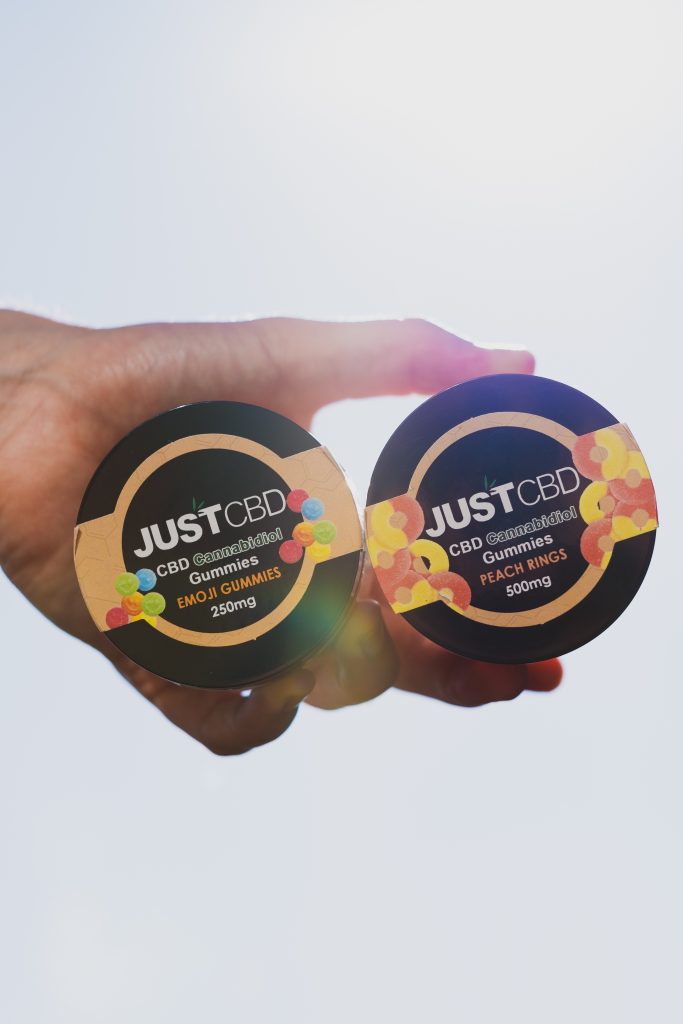 The mission will transport plant cultures to space to look at zero gravity's effects on the vegetation' metabolic pathways. Some of these mutations might turn out to be useful, so there's an incentive for business functions. For instance, the area-grown hemp and low might prove to be extra resilient to climate change in some areas. Previously, ZME Science reported how world heating is causing a coffee crisis (Oh, boy!) — outcomes counsel that coffee-appropriate areas might be lowered seventy three–88% by 2050 across warming eventualities. Another research discovered that over half of the world’s wild coffee is facing extinction. The research can be not completely concerning the production of coffee and pot in outer space—certainly, Front Range envisions data from the examine getting used here on Earth, too. Just final year, the company joined forces with Frinj Coffee to produce coffee plants that can develop within the usually inhospitable local weather of Central Southern California. Coffee is usually grown in equatorial or subtropical areas in Central and South America, East Africa, and Southeast Asia. “This is likely one of the first instances anybody is researching the effects of microgravity and spaceflight on hemp and low cell cultures. In a statement released by Front Range Biosciences, Chief Executive Office Jonathan Vaught explained that this is among the pioneering experiments in researching the results of microgravity and spaceflight on hemp and occasional cell cultures. "There is science to assist the idea that crops in area expertise mutations. This is an opportunity to see whether these mutations maintain up as soon as brought back to Earth and if there are new business functions to it." Front Range Biosciences is a Colorado-based biotech company, striving to companion slicing-edge scientific analysis and improvement with the expansion of in-demand crops like hemp and coffee. The firm just lately introduced their plans to associate with Space Cells – a nearby tech startup – and the University of Colorado Boulder for an thrilling new project.
The mission will transport plant cultures to space to look at zero gravity's effects on the vegetation' metabolic pathways. Some of these mutations might turn out to be useful, so there's an incentive for business functions. For instance, the area-grown hemp and low might prove to be extra resilient to climate change in some areas. Previously, ZME Science reported how world heating is causing a coffee crisis (Oh, boy!) — outcomes counsel that coffee-appropriate areas might be lowered seventy three–88% by 2050 across warming eventualities. Another research discovered that over half of the world’s wild coffee is facing extinction. The research can be not completely concerning the production of coffee and pot in outer space—certainly, Front Range envisions data from the examine getting used here on Earth, too. Just final year, the company joined forces with Frinj Coffee to produce coffee plants that can develop within the usually inhospitable local weather of Central Southern California. Coffee is usually grown in equatorial or subtropical areas in Central and South America, East Africa, and Southeast Asia. “This is likely one of the first instances anybody is researching the effects of microgravity and spaceflight on hemp and low cell cultures. In a statement released by Front Range Biosciences, Chief Executive Office Jonathan Vaught explained that this is among the pioneering experiments in researching the results of microgravity and spaceflight on hemp and occasional cell cultures. "There is science to assist the idea that crops in area expertise mutations. This is an opportunity to see whether these mutations maintain up as soon as brought back to Earth and if there are new business functions to it." Front Range Biosciences is a Colorado-based biotech company, striving to companion slicing-edge scientific analysis and improvement with the expansion of in-demand crops like hemp and coffee. The firm just lately introduced their plans to associate with Space Cells – a nearby tech startup – and the University of Colorado Boulder for an thrilling new project. 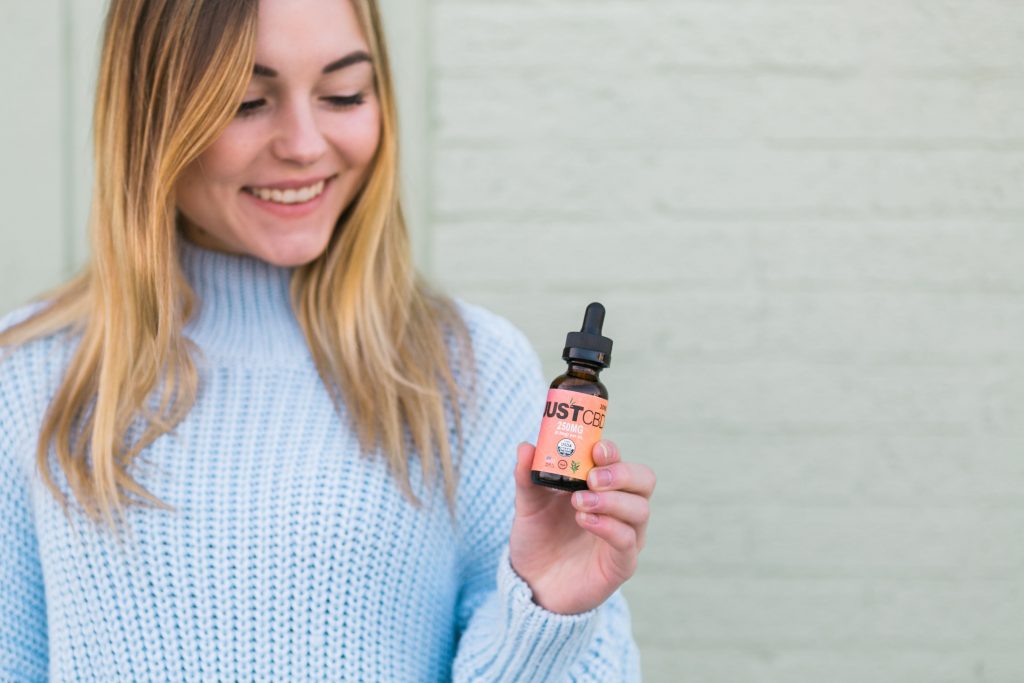 Front Range Bioscience’s partner for espresso manufacturing, Frinj, has developed espresso varieties and farming strategies for growing espresso in Southern California. The project with SpaceCells will mark the beginning of FRB’s genomics program in espresso. “We are excited to be taught extra about each hemp and occasional gene expression in microgravity and the way that may inform our breeding packages,” mentioned Dr. Reggie Gaudino, VP of Research and Development at FRB. Front Range Biosciences is offering the plant cultures; SpaceCells will provide expertise, management, and funding for the project. BioServe has flight-qualified hardware to accommodate the plant cultures and services onboard the International Space Station (ISS) to keep up the cultures beneath managed conditions. FRB may even be sending espresso plant tissue cultures along with the hemp ones, as the company also grows espresso here on Earth. If nobody’s going to get excessive (it’s extremely unlikely) then you definitely must be questioning – what’s precisely the goal of this research examine? The firm might be sending over 480 plant cell cultures as much as the house station via SpaceX’s next cargo mission in March 2020. It’s to study the impact of microgravity and spaceflight (radiation) on the espresso and hemp cultures. No, it’s not for astronauts aboard the ISS to smoke up, get excessive, and be more efficient. Since house does not present a great condition for all times to thrive, it isn't but known how crops will germinate. For this experiment, nonetheless, environmental situations for the coffee vegetation will be strictly noticed. 480 plant cells might be positioned in an incubator for 30 days, which can regulate the temperature. Up to 480 plant cell cultures will spend approximately 30 days aboard the ISS in a temperature-regulated, area-made incubator where the environmental situations for the cultures might be monitored remotely from BioServe’s payload operations heart at UOCB. Elon Musk may be staying away from cannabis after his last appearance on Joe Rogan’s podcast, however his SpaceX firm might be sending some of it to the International Space Station (ISS) in 2020. In June 2013, Seed Hub and High Times despatched 95 marijuana seeds, a plant clone, and a big joint 19 miles above the Earth on a climate balloon. In 2017, two dispensaries, Herban Planet and Level Up, in addition to area marketing firm Sent to Space launched one pound of high-quality Thin Mint GSC in a weather balloon 131,208 toes. FRB partnered with SpaceCells USA Inc. and BioServe Space Technologies at the University of Colorado. The team is planning on launching over 480 plant cell cultures in a space-grade incubator inside a SpaceX CRS-20 cargo flight. In one other giant step for mankind, SpaceX will send hemp and low to house. In conjunction with the Colorado-based mostly Front Range Biosciences, a SpaceX cargo flight is about to ship hemp and occasional cultures to the International Space Station (ISS). The plan is to check whether or not zero gravity has any impact on the genes within the plant cultures. Agricultural know-how firm and hemp research agency Front Range Biosciences has just introduced the plan, which will see espresso and hemp tissue cultures despatched to the ISS so that they can be cultivated and studied at varied levels of gravity, stories Westword. The firm has additionally partnered with tech startup Space Cells and the research institute BioServe Space Technologies at the University of Colorado, Boulder for the study. “The experiment, being targeted for transportation to the space station aboard the SpaceX CRS-20 cargo flight scheduled for March 2020, will have a look at how plant cells endure gene expression modifications or genetic mutations while in area. Front Range Biosciences is offering the plant cultures, while SpaceCells will provide expertise, management and funding for the project. BioServe has flight qualified hardware to deal with the plant cultures and amenities on board the International Space Station (ISS) to take care of the cultures beneath managed circumstances. BioServe will manifest and combine the experiment and can work with the NASA astronauts to switch experiment hardware to BioServe's incubator on board ISS and execute the experiment. This is a chance to see whether these mutations hold up as soon as brought back to earth and if there are new industrial applications." , will take a look at how plant cells bear gene expression modifications or genetic mutations while in house. Instead, hemp is the plant that was lately made legal on the federal degree but doesn’t contain sufficient tetrahydrocannabinol (or THC)—the primary psychoactive ingredient in cannabis—to get you high. Once the board the ISS, the plant cells might be contained in a space-made incubator with regulated temperature for about 30 days. However, the American area station is about to receive its personal batch of hemp - but in the name of science. The cultures might be transported to the house station aboard the SpaceX CRS-20 cargo flight that is set for March 2020.
Front Range Bioscience’s partner for espresso manufacturing, Frinj, has developed espresso varieties and farming strategies for growing espresso in Southern California. The project with SpaceCells will mark the beginning of FRB’s genomics program in espresso. “We are excited to be taught extra about each hemp and occasional gene expression in microgravity and the way that may inform our breeding packages,” mentioned Dr. Reggie Gaudino, VP of Research and Development at FRB. Front Range Biosciences is offering the plant cultures; SpaceCells will provide expertise, management, and funding for the project. BioServe has flight-qualified hardware to accommodate the plant cultures and services onboard the International Space Station (ISS) to keep up the cultures beneath managed conditions. FRB may even be sending espresso plant tissue cultures along with the hemp ones, as the company also grows espresso here on Earth. If nobody’s going to get excessive (it’s extremely unlikely) then you definitely must be questioning – what’s precisely the goal of this research examine? The firm might be sending over 480 plant cell cultures as much as the house station via SpaceX’s next cargo mission in March 2020. It’s to study the impact of microgravity and spaceflight (radiation) on the espresso and hemp cultures. No, it’s not for astronauts aboard the ISS to smoke up, get excessive, and be more efficient. Since house does not present a great condition for all times to thrive, it isn't but known how crops will germinate. For this experiment, nonetheless, environmental situations for the coffee vegetation will be strictly noticed. 480 plant cells might be positioned in an incubator for 30 days, which can regulate the temperature. Up to 480 plant cell cultures will spend approximately 30 days aboard the ISS in a temperature-regulated, area-made incubator where the environmental situations for the cultures might be monitored remotely from BioServe’s payload operations heart at UOCB. Elon Musk may be staying away from cannabis after his last appearance on Joe Rogan’s podcast, however his SpaceX firm might be sending some of it to the International Space Station (ISS) in 2020. In June 2013, Seed Hub and High Times despatched 95 marijuana seeds, a plant clone, and a big joint 19 miles above the Earth on a climate balloon. In 2017, two dispensaries, Herban Planet and Level Up, in addition to area marketing firm Sent to Space launched one pound of high-quality Thin Mint GSC in a weather balloon 131,208 toes. FRB partnered with SpaceCells USA Inc. and BioServe Space Technologies at the University of Colorado. The team is planning on launching over 480 plant cell cultures in a space-grade incubator inside a SpaceX CRS-20 cargo flight. In one other giant step for mankind, SpaceX will send hemp and low to house. In conjunction with the Colorado-based mostly Front Range Biosciences, a SpaceX cargo flight is about to ship hemp and occasional cultures to the International Space Station (ISS). The plan is to check whether or not zero gravity has any impact on the genes within the plant cultures. Agricultural know-how firm and hemp research agency Front Range Biosciences has just introduced the plan, which will see espresso and hemp tissue cultures despatched to the ISS so that they can be cultivated and studied at varied levels of gravity, stories Westword. The firm has additionally partnered with tech startup Space Cells and the research institute BioServe Space Technologies at the University of Colorado, Boulder for the study. “The experiment, being targeted for transportation to the space station aboard the SpaceX CRS-20 cargo flight scheduled for March 2020, will have a look at how plant cells endure gene expression modifications or genetic mutations while in area. Front Range Biosciences is offering the plant cultures, while SpaceCells will provide expertise, management and funding for the project. BioServe has flight qualified hardware to deal with the plant cultures and amenities on board the International Space Station (ISS) to take care of the cultures beneath managed circumstances. BioServe will manifest and combine the experiment and can work with the NASA astronauts to switch experiment hardware to BioServe's incubator on board ISS and execute the experiment. This is a chance to see whether these mutations hold up as soon as brought back to earth and if there are new industrial applications." , will take a look at how plant cells bear gene expression modifications or genetic mutations while in house. Instead, hemp is the plant that was lately made legal on the federal degree but doesn’t contain sufficient tetrahydrocannabinol (or THC)—the primary psychoactive ingredient in cannabis—to get you high. Once the board the ISS, the plant cells might be contained in a space-made incubator with regulated temperature for about 30 days. However, the American area station is about to receive its personal batch of hemp - but in the name of science. The cultures might be transported to the house station aboard the SpaceX CRS-20 cargo flight that is set for March 2020. 